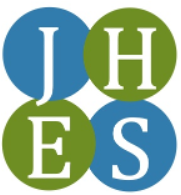ABSTRACT
With COVID-19 disrupting basic health services, the Family MUAC approach was recognized as a “reduced physical contact” method for detecting malnutrition among children aged 6-59 months old. The mid-upper arm circumference (MUAC) is an anthropometric measure taken at the midpoint of the upper arm, between the tip of the shoulder (olecranon process) and the tip of the elbow (acromion). While this approach is already being implemented in 26 countries worldwide, there is a research gap in the implementing strategies of the Family MUAC approach in the Philippines. As of 2021, there were only a few documented barangay-level activities involving this approach; a pilot implementation in Samar, Northern Samar, and Zamboanga Del Norte, and a virtual training in Cagayan Province.
This quantitative study was conducted to correlate factors with the competency of the Barangay Nutrition Scholars in the implementation of the Family MUAC approach. The study surveyed all 18 Barangay Nutrition Scholars in Cabuyao, Laguna using a pretested structured questionnaire. Descriptive statistics were used to describe the socioeconomic and demographic characteristics, supportive systems, resources, and level of competency of the respondents. On the other hand, Spearman and Cramer’s V coefficients were calculated to identify factors correlated with the competency of the respondents.
With the majority of the respondents having a moderate level of competency (72.2%), results showed that competency was negatively correlated with age and positively correlated with household size, monthly family income, last MUAC training, supervisory visits, refresher training, and availability of selected supplies. In conclusion, the variables above were factors correlated with competency, and knowledge, experience, and motivation were sufficient measures of the Barangay Nutrition Scholars’ level of competency.
The study recommends reinforcing strategies on the identified positively-influencing factors related to family support, training, supervision, and supplies to improve the competency of the Barangay Nutrition Scholars in the implementation of the Family MUAC approach.
ABOUT THIS ARTICLE
Authors and Affiliations
Xheanttle P. Mirasol and Normahitta P. Gordoncillo
Institute of Human Nutrition and Food. College of Human Ecology. University of the
Philippines Los Baños, College 4031, Laguna, Philippines
*correspondence: xpmirasol@up.edu.ph
| Received | Accepted | Published |
| 21 September 2023 | 16 November 2023 | 01 December 2023 |
Cite this article
Mirasol, X. P. & Gordoncillo, N. P. (2023). Factors Correlated with the Competency of Barangay Nutrition Scholars in Cabuyao, Laguna in the Implementation of the Family MUAC Approach. Journal of Human Ecology and Sustainability, 1(1), 7. https://doi.org/10.56237/jhes23009
Rights and permissions
This is an open-access article distributed under the terms and conditions of the Creative Commons Attribution (CC BY) license (https://creativecommons.org/licenses/by-nc-nd/4.0/), which permits unrestricted use, distribution, and reproduction in any medium, provided you give appropriate credit to the original author(s) and the source, provide a link to the Creative Commons license, and indicate if changes were made.
